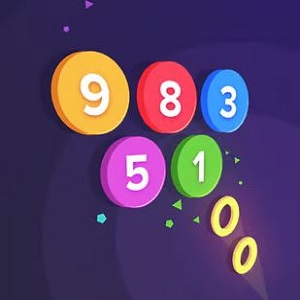 Obby Blox Parkour
Obby Blox Parkour
Skill games have taken the gaming world by storm in recent years, captivating players with their unique blend of strategy, competition, and entertainment. Unlike traditional games of chance, skill games rely on a player’s abilities, knowledge, and decision-making to determine the outcome. This fascinating genre encompasses a wide range of activities, from card games to puzzles, e-sports, and even physical sports. In this article, we will explore the exciting world of skill games, their history, and why they have become such a prominent part of modern gaming culture.
The Evolution of Skill Games
The concept of skill-based games is not a recent phenomenon. These games have been around for centuries, with examples dating back to ancient civilizations. Chess, often considered the epitome of a skill game, traces its origins to the 6th century in India. Other traditional games like Go, Mahjong, and Backgammon have also endured through the ages, and they continue to be popular to this day.
In more recent times, the digital age brought a plethora of skill-based video games, particularly in the realm of e-sports. Games like “StarCraft,” “Dota 2,” and “League of Legends” have become global phenomena, attracting millions of players and viewers. Professional e-sports players train rigorously to perfect their skills, turning their passion into a lucrative career.
Skill Games vs. Games of Chance
What distinguishes skill games from games of chance is the element of control. In skill games, the outcome is determined by a player’s proficiency, strategy, and decision-making, while games of chance depend solely on luck. For example, a game like poker blends both skill and chance; players must make strategic decisions based on their hand, but luck still plays a significant role in the cards they are dealt.
This distinction is crucial because it shifts the balance of power from the house to the player. In games of chance, the house always maintains an edge, but skill games allow players to improve their abilities over time, thereby increasing their chances of winning.
The Growing Popularity of Skill Games
One reason for the rising popularity of skill games is the internet. Online platforms have made it easier for people to connect and compete with players from around the world. Gamers can now hone their skills, participate in tournaments, and even win real money prizes from the comfort of their homes.
Furthermore, skill games have entered the realm of mobile gaming, offering quick, on-the-go entertainment. Games like “Candy Crush,” “Angry Birds,” and “Sudoku” have millions of players addicted to testing their problem-solving abilities and reflexes.
Social interaction is another driving factor in the success of skill games. Many of these games, whether card games or e-sports, allow players to compete against friends and strangers alike, fostering a sense of community and competition.
The Impact on Cognitive Skills
Skill games offer more than just entertainment; they also provide cognitive benefits. Playing these games regularly can enhance various mental faculties, such as memory, problem-solving, and critical thinking. Strategy games, in particular, require players to anticipate their opponent’s moves and plan their own moves accordingly. This constant mental exercise can help improve decision-making skills in real-life situations.
Conclusion
Skill games have come a long way from their ancient origins, evolving into a dynamic, competitive, and ever-expanding genre. Whether you’re a chess enthusiast, a poker aficionado, an e-sports fanatic, or someone who enjoys the occasional puzzle on your smartphone, skill games offer a diverse array of entertainment options. Their ability to combine entertainment with cognitive development, along with the excitement of competition, ensures that skill games will continue to thrive in the gaming world for years to come. So, sharpen your skills, engage in some friendly competition, and embark on an exhilarating journey in the world of skill games.












